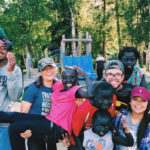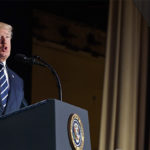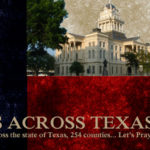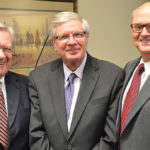The Olympic Games are bringing back China memories for former missionary Britt Towery. Most of the memories are good, but some are not.
Britt Towery spent more than 30 years in Chinese ministry in Taiwan, Hong Kong and mainland China. He and is wife, Jody, are graduates of Howard Payne University and helped begin the First Baptist Church of Pingtung, Taiwan. He is also a former director of the Asian Studies Program at Baylor University.
|
Britt Towery
|
"In 1982, our first of over 50 long visits all over China, everyone was so happy to have church again, I didn't sense much discord." All religious expression had been banned during the Cultural Revolution of 1966-1976. Open worship had only been possible for a few years.
But discord preceded that era, and more would follow.
"There were and are ardent fundamentalists who refuse to cooperate with anybody. Watchman Nee (not as revered by Chinese believers as he is in the West) and Wang Daoming were two outstanding preachers and also ultra conservatives," Towery said. "They left their mark on their churches. Wang was put in prison when the Japanese were there, and later by the Communists, mostly for his hard-headedness."
Once the churches were allowed to worship freely, many decided they didn't want to join the recognized government structure.
There was a similar situation for Christians in the Soviet Union, but it was much harsher there than for the Chinese church, he said, with exception of the Cultural Revolution years. (See a personal rumination on this comparison here )
"In my personal experience, in the city of Nanjing at that time (early 1980s) there were three open churches and seven house churches, and many of the people went to both. In the Southern Baptist Foreign Mission Board film Winter Is Past we filmed services in a house church in Nanjing. That was in 1984. There are many more (house churches) there and over the land as you know. In Henan Province, where Baptists had a 'stronghold,' the house churches (mainly due to a lack of buildings) have been most vocal, and sometimes are shut down just because it disturbed the neighbors."
Stories of persecution
Sign up for our weekly edition and get all our headlines in your inbox on Thursdays
Towery said he's heard terrible tales from some of his Chinese friends about persecution during the Cultural Revolution days.
His friend Charlie Qi, former pastor of Grace Church in Shanghai, had traveled to America after World War II and spoken at Ridgecrest Baptist Conference Center. A dozen years later, that brought him harrassment. "They claimed he was a spy, why else would America honor him? He was paraded through the streets shamefully as were thousands, Christians and communists alike." Qi died in 1990. Another friend of Towery's had been imprisoned in Shanghai for listening to classical music, a counter-revolutionary act during the Cultural Revolution.

Today, he says, many incidents of persecution are local abberations, rather than orders from on high.
"Of course there is lots of misunderstanding. There have been [persecutions] without doubt. It is … the local 'cadre' or village party boss –who knows nothing of religion— that causes problems. Corruption is rampant. The cadre tries to get some bribe from a church for something and is refused. So he abuses his authority and causes them trouble in the community. These are things usually overlooked by the reporter wanting a good persecution story."
"China is so big and complicated that nearly anything you hear happened somewhere. But I am skeptical about a lot of the persecution stories. Many Christians are still more anti-communist than pro-God."
A change in missions policy
Towery's bad memories date from a change of missions policy in the late 1980s, when the Southern Baptist Convention decided to begin covert ministries in China. It led to Towery's early retirement.
"You see, the CCC (China Christian Council, the government-recognized entity) asked the SBC to leave China in the early '90s because [the SBC] insisted on beginning secret work while lying about it to the CCC. I was there and know what they told K.H. (Bishop K. H. Ting) and Han Wenzao. They wanted to work with the CCC and then do their own thing. The Methodists, Presbyterians, everybody I know –Lutherans, etc.– all worked honestly with the CCC."
He disagreed with the ethics of the covert path as well as the way it came about, he says. And his sponsors didn't trust him because he was too close to the CCC leadership. The government-recognized church leaders, who were left to find out on their own what was going on, felt betrayed.
Towery said he has struggled to repent of the bitterness he felt personally from the whole affair.
But his current outlook for Chinese Christians is hopeful. Towery explains he has not been to Beijing since 1999 though he keeps in touch with pastors and lay leaders by e-mail. But he says the situation of churches in China is improving incrementally.
"The registered ('open' or meeting in regular church-like buildings) and unregistered churches (house churches, sometimes called 'underground') in China, from all I hear from there, are getting closer together."
China's exploding economy can only help improve conditions for Christian believers there, he said.
"Just as today's young people in China are overlooking politics and the government, getting rich and become more proud of their country, I think the church situation will also evolve to a more harmonious era, slowly."














We seek to connect God’s story and God’s people around the world. To learn more about God’s story, click here.
Send comments and feedback to Eric Black, our editor. For comments to be published, please specify “letter to the editor.” Maximum length for publication is 300 words.